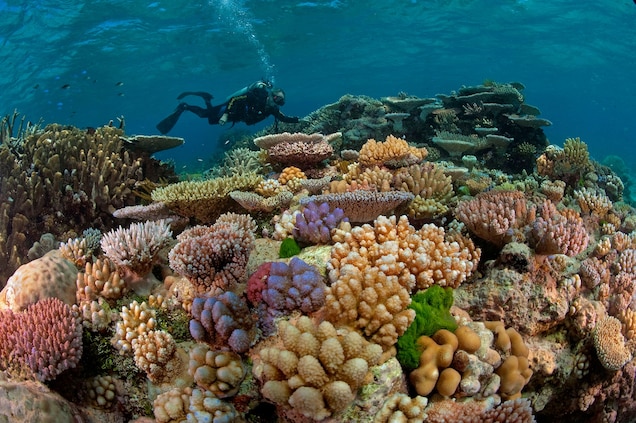Warm waters inhibit the growth of fast-growing coral species on the Great Barrier Reef, a study has found.

The Great Barrier Reef is the world’s largest coral reef system composed of over 2,900 individual reefs and 900 islands stretching for over 2,300 kilometres over an area of approximately 344,400 square kilometres.
In a research published on Wednesday,January 11, 2023, scientists from the Australian Institute of Marine Science (AIMS) found that fast-growing coral on the iconic reef was likely to be hit with a double blow of high mortality.
Also with slow growth during acute heat stress events.
The government agency’s findings are a major blow to the long-term survival prospects of the reef as the world’s oceans continue to warm.
According to AIMS’ Long Term Monitoring Programme, recent increases in coral cover in the northern and central regions of the reef were largely driven by fast-growing species.
These were common but more susceptible to marine heatwaves.
“Our results demonstrate that these fast-growing table corals, critical for reef recovery, have evolved strategies that are perfect to maximise growth in their current environment,’’ Juan Ortiz said.
Ortiz, a senior author of the study, said in a statement: “But these initial findings may indicate that they have limited potential for adaptation to future hotter conditions.’’
Ortiz and his team used the AIMS National Sea Simulator to track the growth of four coral species from one part of the reef at 10 temperatures ranging from 19 to 31 degrees Celsius over the course of a month.
The scientists were surprised by how consistently individual colonies of the same coral species responded to temperature.
Ortiz said the team would expand the research to include more species from different parts of the reef.
“Low variability in their response to temperature could make it harder for corals to naturally evolve higher thermal tolerance.
“To gain more insights, we need to understand what is happening at a bigger scale and across more species,” he said.
